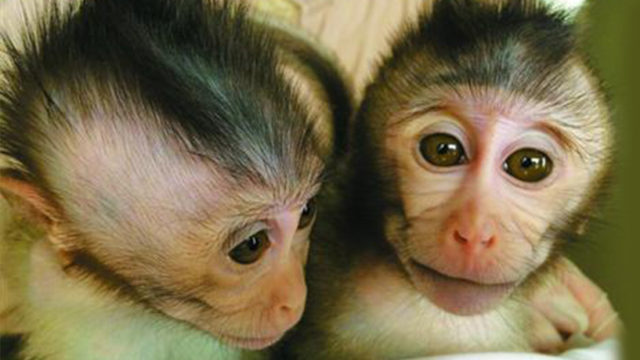Chinese scientists from the Chinese Academy of Science’s Institute of Neuroscience say they have created monkeys that display the same symptoms as human autism.
The experiments have been done in the hope of discovering a treatment to cure the disease that currently has no cure.
The experiment altered the DNA of monkeys with human genes, making them laboratory models for scientists to probe the brain disorder disease which usually manifests in people displaying social interaction difficulties, repetitive behaviors and high levels of anxiety.
The transgenic macaques are seen as a reliable animal model for researching the causes and possible cures of autism in humans.
The Shanghai team injected MECP2 genes into the monkeys. Humans carrying abnormally high levels of the MECP2 gene display the symptoms of autism. The scientists inserted the genes into the monkey’s eggs as they were being fertilized.
Previously scientists have used the same method to insert the MECP2 gene into pet mice. However, scientists believe monkeys are a more useful model to study as they are closer to humans with more similar behavioral traits.
Scientists are not sure what causes Autism, and the increasing rate of growth of the disease has gained widespread attention from around the world.
However, using animals in scientific research remains a debatable topic between scientists and online users.
John Spiro, deputy scientific director of the Simons Foundation Autism Research Initiative in New York, expressed concerns about scientists using primates as test models, and told Nature that, “there is a sentiment that you are never going to generate enough animals [monkeys] to be able to do the really important experiments,” he says. “But a lot of people feel extraordinary strongly that rodents aren’t good enough.”
A WSJ online user commented on the issue of animal welfare as well, saying that they are sad and cruel. “If you think that a monkey brain is sufficiently similar to a human brain that they can be afflicted with diseases like autism, then it is clearly immoral and unethical to knowingly inflict suffering on a creature whose brain works so similarly to our own.”
 CGTN America
CGTN America
 Chinese scientists create “autistic” monkeys in hope of finding cure. PHOTO/Institute of Neuroscience, CAS
Chinese scientists create “autistic” monkeys in hope of finding cure. PHOTO/Institute of Neuroscience, CAS
